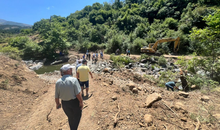
 Flash News
Flash News
Arrests of "Bankers Petrolium", Prosecution provides details: Exported and sold 532 billion lek of oil, caused millions of euros in damage to the state
Ndahet nga jeta tragjikisht në moshën 28-vjeçare ylli i Liverpool, Diogo Jota
Posta e mëngjesit/ Me 2 rreshta: Çfarë pati rëndësi dje në Shqipëri
Ceno Klosi with over 800 stolen votes, Balluku finds the reason is the tiredness of the counters
"Fast & Furious" in the former Block, police chase an Audi Q8, 4 cars collide
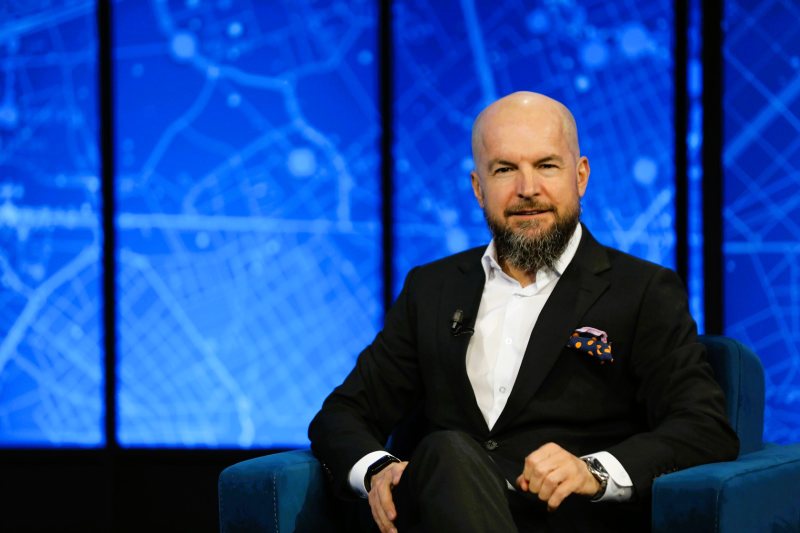
Alfred Lela
In 2011, Edi Rama ignored the Democratic Party’s campaign in the very municipality he led — Tirana. The Democratic candidate, Lulzim Basha, ran a calm, clean campaign, free of insults and, most importantly, rich in content and concrete proposals.
It was a textbook case of what a challenger must do when facing an entrenched incumbent: offer contrast, clarity, and an alternative. Rama initially dismissed the Democratic campaign entirely, traveling across Albania as if the race were national, even though the true battleground was local, and Tirana was at its heart. But within two weeks, things began to shift. Realizing that he was losing ground and that Basha’s platform was resonating, Rama pivoted — too late.
Fast forward to 2025, and history seems to be repeating itself. Some things have changed, but not much. Back then, the campaign was led by Sali Berisha, with American advisors at the helm. Just like now. Rama was being coached by foreign consultants. Just like now.
What hasn’t changed is the central truth: nothing saves Edi Rama from his arrogance. He tends to realize the damage he has caused only when it’s too late.
Then, as now, Rama dismissed the opposition’s campaign — the 'owl' (a metaphor used by Rama for Berisha’s movement) — as a "magic carpet". But Sali Berisha did not engage in tactics. He engaged in strategy. Upon emerging from isolation, in his very first public appearance, Berisha avoided discussing his house arrest and immediately shifted the national conversation to the opposition’s program. From early December 2024 onward, he consistently laid out a platform rooted in economic policy, a "Compassion Package", and strong support for pensioners.
For six months now, the opposition leader has articulated a three-level vision for Albania:
For the impossible — those who must be lifted from destitution
For the middle class, which must be liberated from over-taxation and stagnation
For the creative/productive class, for whom enabling conditions must be created, through policies like Made in Albania and positioning Albania as the regional ICT hub
What has Rama offered in return? One tactic: the European passport. As a matter of political philosophy, this is not a platform — it is an insult. Just as one does not speak of ropes in the house of a hanged man, one does not speak of “escape” in a land emptied by forced migration. Rama has overseen the exodus of over 1 million Albanians, and now his great promise is… more exodus.
By proposing the passport as a centerpiece of his campaign, Rama brands himself as a prime minister detached from his nation’s traumas, and deeply tethered to his obsessions. The European passport is not a development platform. It is a diversion.
And yet, something curious is happening. Rama, who once derided Berisha’s platform — mocking proposals like the living minimum and minimum pension as paths to economic ruin — has now begun to appropriate them. At least six of Berisha’s promises have been mirrored by Rama, one after the other.
Just like in 2011, Rama is being pulled into Berisha’s orbit. He can no longer ignore the campaign. He walks Albania now with figures and charts, a far cry from the theatrical disdain of the past. But the owl still haunts him. The populist storms still rage behind him. Only now, he plays the serious man—perhaps too late.
Welcome to the campaign, Mr. Rama.
If history repeats itself and you lose narrowly, the anger will be bitter. But at least one thing will have changed:
Your sabbatical retreat won’t be in Peza — it will be in Surrel.
Latest news

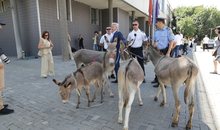

Fire situation in the country, 29 fires reported in 24 hours
2025-07-03 12:00:04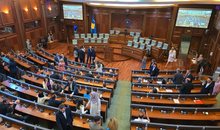
The constitution of the Kosovo Assembly fails for the 41st time
2025-07-03 11:59:57
The gendering of politics
2025-07-03 11:48:36
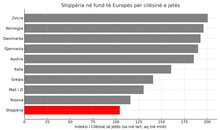
The price we pay after the "elections"
2025-07-03 11:25:39
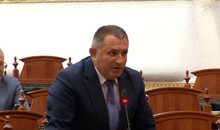
Xhafa: The fire at the Elbasan landfill was deliberately lit to destroy evidence
2025-07-03 11:08:43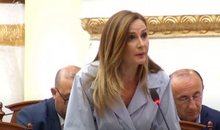

The 3 zodiac signs that will have financial growth during July
2025-07-03 10:48:01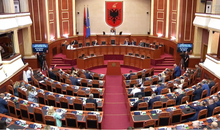
Democratic MP talks about the incinerator, Spiropali turns off her microphone
2025-07-03 10:39:24

Ndahet nga jeta tragjikisht në moshën 28-vjeçare ylli i Liverpool, Diogo Jota
2025-07-03 10:21:03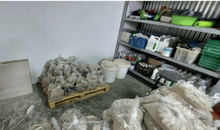
Cocaine trafficking network in Greece, including Albanians, uncovered
2025-07-03 10:10:12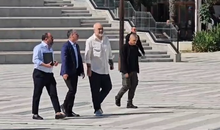
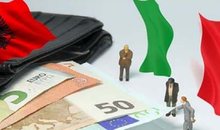

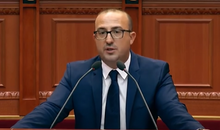
Korreshi: Election manipulation began long before the voting date
2025-07-03 09:39:13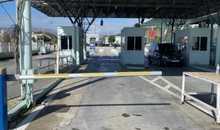
Arrest of Greek customs officer 'paralyzes' vehicle traffic at Qafë Botë
2025-07-03 09:28:41
After Tirana and Fier, the boxes are opened in Durrës today
2025-07-03 09:21:10
Enea Mihaj transfers to the USA, will play as an opponent of Messi and Uzun
2025-07-03 09:10:04

Foreign exchange, the rate at which foreign currencies are sold and bought
2025-07-03 08:53:50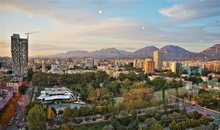
Index, Albania has the worst quality of life in Europe
2025-07-03 08:48:10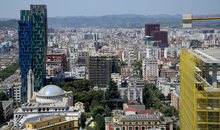
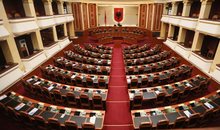

Horoscope, what do the stars have in store for you today?
2025-07-03 08:17:05
Clear weather and high temperatures, here's the forecast for this Thursday
2025-07-03 08:00:37
Posta e mëngjesit/ Me 2 rreshta: Çfarë pati rëndësi dje në Shqipëri
2025-07-03 07:46:48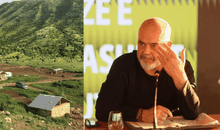




Lufta në Gaza/ Pse Netanyahu do vetëm një armëpushim 60-ditor, jo të përhershëm?
2025-07-02 21:56:08
US suspends some military aid to Ukraine
2025-07-02 21:40:55



Methadone shortage, users return to heroin: We steal to buy it
2025-07-02 20:57:35
Government enters oil market, Rama: New price for consumers
2025-07-02 20:43:30
WHO calls for 50% price hike for tobacco, alcohol and sugary drinks
2025-07-02 20:41:53







Israel agrees to 60-day ceasefire in Gaza, but many unanswered questions remain
2025-07-02 18:35:27
The weather in Germany is going "crazy", temperatures reach 40°C
2025-07-02 18:22:21

"Fast & Furious" in the former Block, police chase an Audi Q8, 4 cars collide
2025-07-02 17:59:25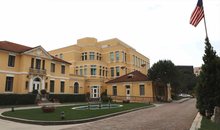
"Birth on a tourist visa? US Embassy warns Albanians: This is prohibited!"
2025-07-02 17:48:16
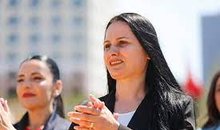

BIRN: Fier recount reveals vote trafficking within open political party lists
2025-07-02 16:57:19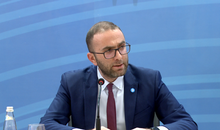

CEO and former director of 'Bankers Petroleum' arrested in Fier
2025-07-02 16:40:42
Car hits two tourists on a motorcycle in Fushe Arrëz, one of them dies
2025-07-02 16:33:23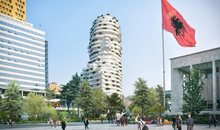



Fire at the Elbasan Incinerator Landfill, Prosecution Launches Investigations
2025-07-02 15:34:54
What you need to know if you travel to a country with active volcanoes
2025-07-02 15:33:03



EU proposes 90% reduction in greenhouse gases by 2040
2025-07-02 14:50:23
Europe is burning from the heat / Italy and France are on maximum alert
2025-07-02 14:36:52

Moscow's contradictory statements: Is the friendship with Vučić breaking down?
2025-07-02 14:21:05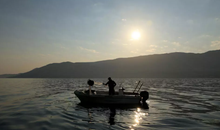
'I lost my battle': Sea warming is killing fishing in Albania
2025-07-02 14:08:35
Sekretet kimike që ndihmojnë në mbajtjen e mjaltit të freskët për kaq gjatë
2025-07-02 14:01:26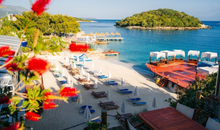
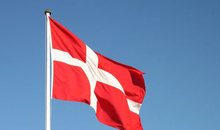
Denmark makes historic decision to make military service mandatory for women
2025-07-02 13:44:33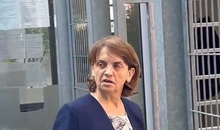
The appeal of the GJKKO leaves former judge Pajtime Fetahu in prison
2025-07-02 13:30:20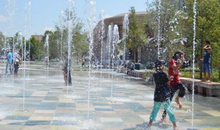
Productivity losses could reduce GDP by 1.3% as a result of extreme heat
2025-07-02 13:21:04
He abused his minor daughter, Zamir Meta is left in prison
2025-07-02 13:04:04

Waste burning in Elbasan, Alizoti: They are poisoning people and stealing money
2025-07-02 12:48:39
Civil disobedience continues in Serbia, dozens of people detained
2025-07-02 12:40:32
Rama's government was born under the sign of garbage and will end like this
2025-07-02 12:28:09
Water prices increase in the municipalities of the Elbasan region
2025-07-02 12:13:38
Civil disobedience continues in Serbia, what is happening in Belgrade?
2025-07-02 12:07:44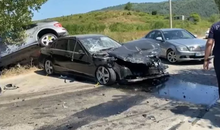
Serious accident in Thumanë, one dead, 3 injured
2025-07-02 11:54:42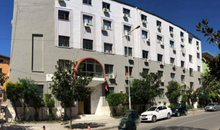
Durrës Court suspends the director of Pre-University Education from duty
2025-07-02 11:49:27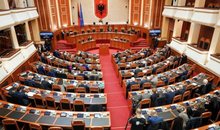
Plenary session on Thursday, what is expected to be discussed
2025-07-02 11:36:43
Europe is burning from heat waves/ What is the 'thermal dome' phenomenon?
2025-07-02 11:26:25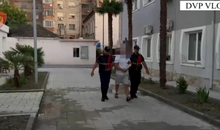
Wanted by Italy for murder, 45-year-old arrested in Vlora
2025-07-02 11:19:31
Fire situation, 28 fires reported in 24 hours, 2 still active
2025-07-02 11:13:20
"Buka" file, preliminary hearing for Ahmetaj postponed to July 17
2025-07-02 11:03:30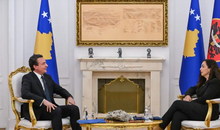
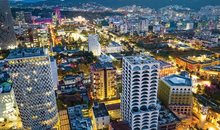

Baçi: Belinda Balluku and Ceno Klosi, the most dangerous "gangs" in Fier
2025-07-02 10:32:09
Zamir Meta, suspected of sexually abusing his daughter, arrives in court
2025-07-02 10:21:33

Trump: Israel has agreed to a 60-day ceasefire in Gaza
2025-07-02 10:01:55
Fire continues at Elbasan landfill
2025-07-02 09:51:13